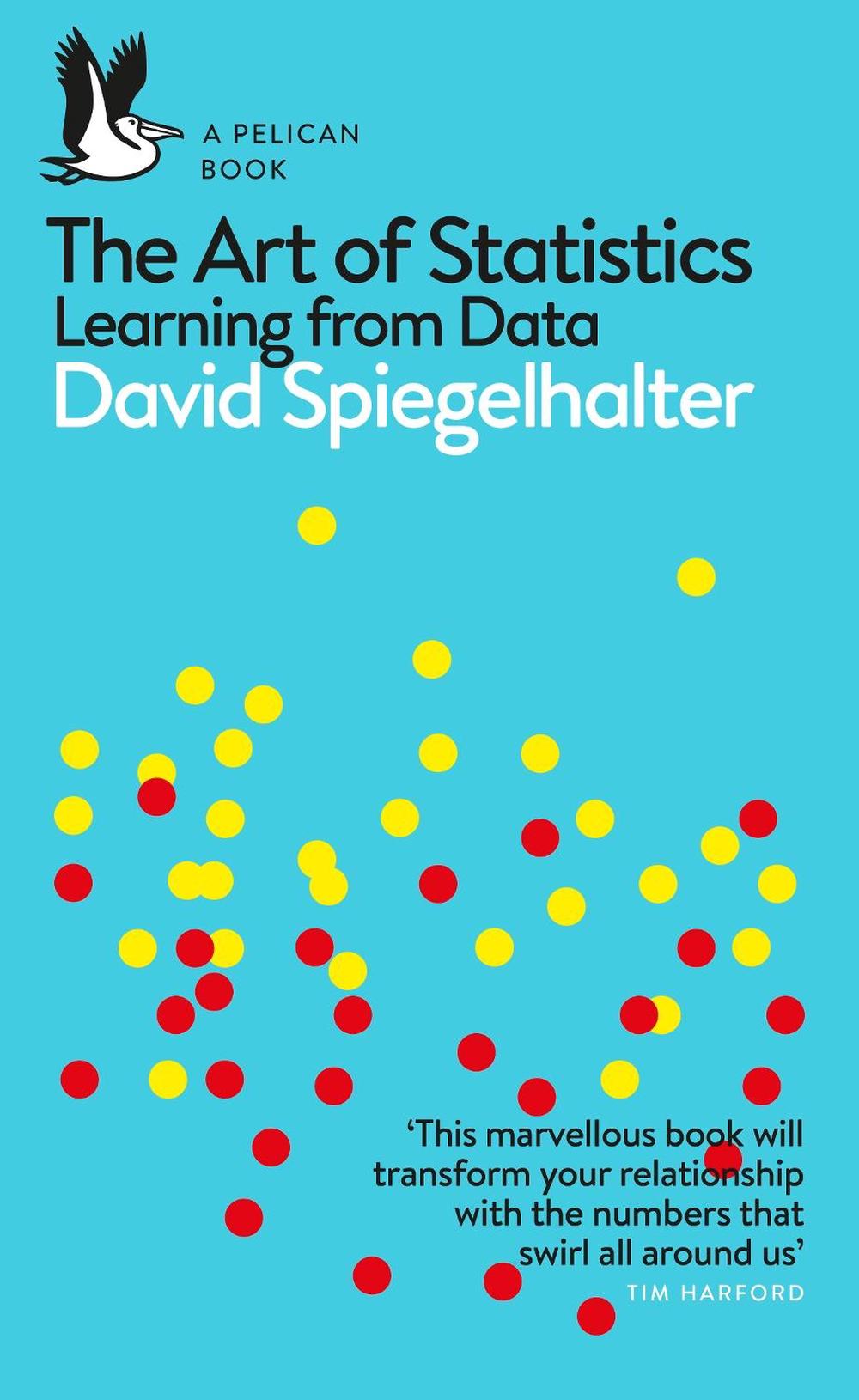
The Art of Statistics
Learning from Data
$24.00
- Paperback
448 pages
- Release Date
17 February 2020
Summary
The surprise bestselling tour de force from a former president of the Royal Statistical Society - the essential guide to statistical science in the age of big data.
Statistics has played a leading role in our scientific understanding of the world for centuries, yet we are all familiar with the way statistical claims can be sensationalized, particularly in the media. In the age of big data, as data science becomes established as a discipline, a basic grasp of statistical literacy is mo…
Book Details
| ISBN-13: | 9780241258767 |
|---|---|
| ISBN-10: | 0241258766 |
| Author: | David Spiegelhalter |
| Publisher: | Penguin Books Ltd |
| Imprint: | Pelican |
| Format: | Paperback |
| Number of Pages: | 448 |
| Release Date: | 17 February 2020 |
| Weight: | 254g |
| Dimensions: | 179mm x 111mm x 27mm |
| Series: | Pelican Books |
You Can Find This Book In
What They're Saying
Critics Review
David Spiegelhalter is probably the greatest living statistical communicator; more than that, he’s one of the great communicators in any field. This marvellous book will transform your relationship with the numbers that swirl all around us. Read it and learn. – Tim HarfordThere is something in here for everyone … A call to arms for greater societal data literacy … Spiegelhalter’s work serves as a reminder that there are passionate, self-aware statisticians who can argue eloquently that their discipline is needed now more than ever. * Financial Times *Shines a light on how we can use the ever-growing deluge of data to improve our understanding of the world … The Art of Statistics will serve students well. And it will be a boon for journalists eager to use statistics responsibly - along with anyone who wants to approach research and its reportage with healthy scepticism. * Nature *What David Spiegelhalter does here is provide a very thorough introductory grounding in statistics without making use of mathematical formulae. And it’s remarkable. Spiegelhalter is warm and encouraging - it’s a genuinely enjoyable read … This book should be required reading for all politicians, journalists, medics and anyone who tries to influence people (or is influenced) by statistics. A tour de force. * Popular Science *The Art of Statistics is in the great educational tradition of its publishing imprint, Pelican Books: an attempt to get everyone up to speed with the practical uses of statistics, without pages of terrifying equations or Greek letters. In a series of spry, airy chapters, he succeeds fabulously … Lucid and readable. In an age of scientific clickbait, ‘big data’ and personalised medicine, this is a book that nearly everyone would benefit from reading. * Spectator *Important and comprehensive – Hannah Fry * New Yorker *This is an excellent book. Spiegelhalter is great at explaining difficult ideas … Yes, statistics can be difficult. But much less difficult if you read this book. * Evening Standard *Like the fictional investigator Sherlock Holmes, Spiegelhalter takes readers on a trail to challenge methodology and stats thrown at us by the media and others. But where other authors have attempted this and failed, he is inventive and clever in picking the right examples that spark the reader’s interest to become active on their own. * Engineering and Technology *Do you trust headlines telling you … that bacon, ham and sausages carry the same cancer risk as cigarettes? No, nor do I. That is why we need a book like this that explains how such implausible nonsense arises in the first place. Written by a master of the subject … this book tells us to examine our assumptions. Bravo. * Standpoint *
About The Author
David Spiegelhalter
Sir David John Spiegelhalter is a British statistician and Chair of the Winton Centre for Risk and Evidence Communication in the Statistical Laboratory at the University of Cambridge. Spiegelhalter is one of the most cited and influential researchers in his field, and was elected as President of the Royal Statistical Society for 2017-18.
Returns
This item is eligible for free returns within 30 days of delivery. See our returns policy for further details.




